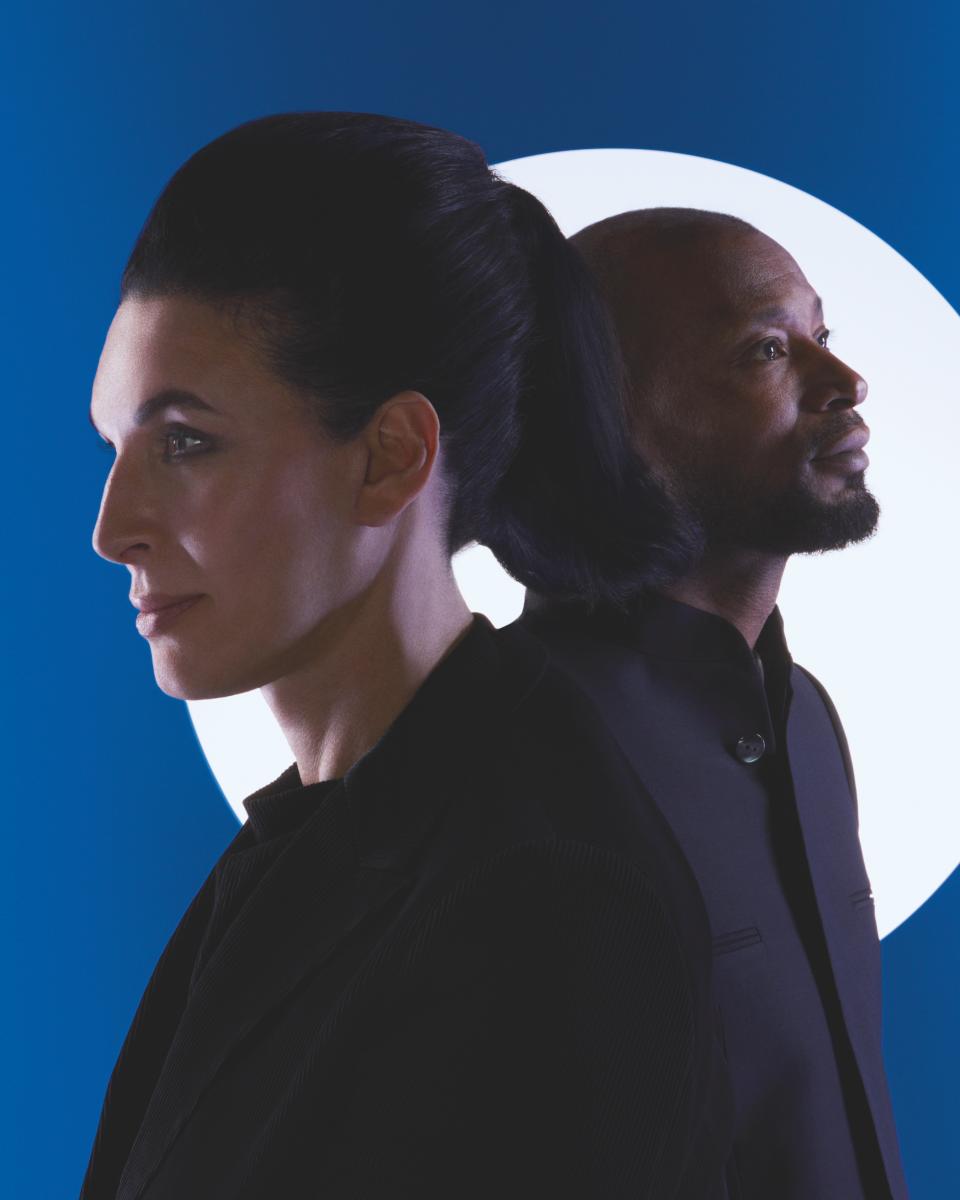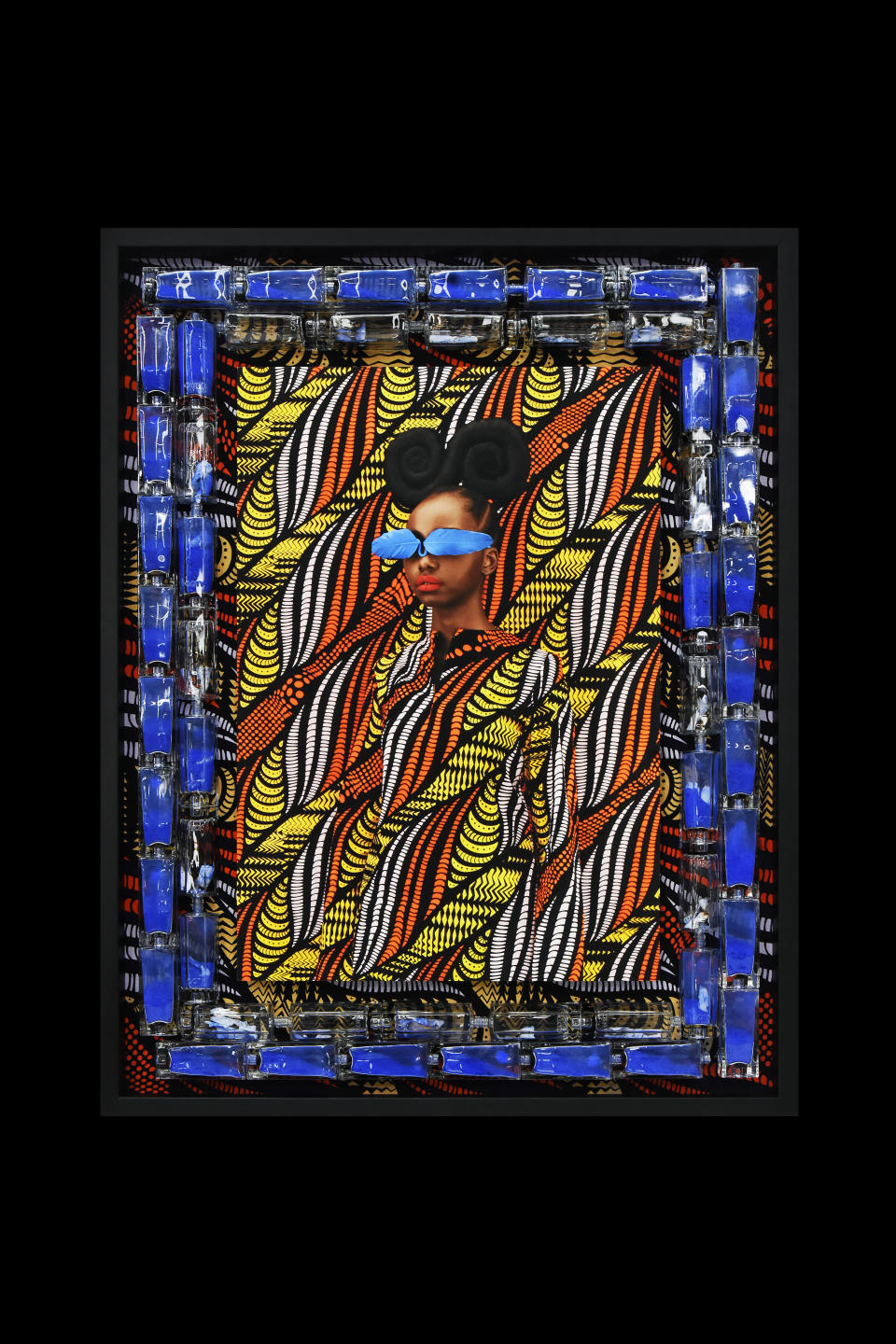EXCLUSIVE: Infiniment Coty Paris Bridges the Past and Future

PARIS — It’s a full-circle moment for Coty Inc.
The beauty giant is celebrating its 120th anniversary this year by going back to its roots and revolutionizing fine fragrance — yet again — with the launch of a next-generation, high-end niche perfume collection called Infiniment Coty Paris.
More from WWD
Famille C Participations Invests in Evok Collection Hotel Group
Ashley Tisdale Launches New Being Frenshe Scent: Palo Santo Sage
“Coty was the inventor of modern perfumery in 1904,” said Sue Y. Nabi, chief executive officer of Coty, sitting in its Parisian headquarters. To illustrate, she showed an elegant vintage bottle of La Rose Jacqueminot, Coty’s first feminine perfume.
“The challenge at the time was to move from naturals to synthetic molecules. Coty wanted to replicate the scent of a rose that never fades,” continued Nabi. “That was a great gateway between what we created [Infiniment Coty] and this first fragrance that invented the modern fragrance industry.”
Infiniment Coty is a rebirth of the Coty Paris brand and an integral part of Nabi’s overriding strategy for Coty — to “undefine” the notion of beauty.
The new line of 14 fragrances has broad business significance. “It’s really going to be the flagship of innovation, sustainability and cultural relevance of the Coty group,” said Nabi.
Infiniment Coty’s Instagram site, @infinimentcoty, and e-commerce platform infinimentcoty.com, are to go live Tuesday. The brand will have its own Paris pop-up, at 5 Rue des Blancs Manteaux, opening March 20 and operational for at least six months.
A flagship at Liberty London debuts March 24, and a boutique stocking both the fragrances and Orveda — the ultra-premium clean skin care brand Nabi and Nicolas Vu co-created — will be unveiled in New York this summer. Infiniment Coty is to be sold in a select number of other niche boutiques, too.
There’s a rich backstory. One year after Nabi and Vu developed Orveda in 2014, the duo set out to disrupt the fragrance market as well, working on perfumes day and night.
“I remember Nicolas saying to me: ‘What’s on the market, it’s too much marketing, maybe not enough quality or creation. But at the same time, creation does not necessarily mean something difficult to wear.’ I thought the brief was interesting.”
So Nabi asked perfumers at fragrance suppliers such as Firmenich, IFF and Symrise to use the highest quality and concentration of ingredients for fragrances both uber-creative and wearable.

Nabi and Vu’s fragrance focus converged with Coty’s in 2020, when Nabi joined as CEO. During a meeting with Peter Harf, now group chairman, they discussed their 10 first scents. Harf suggested those become a Coty brand.
The timing is felicitous. Fragrances are booming for the company. Sales from Coty’s prestige business grew 17 percent in the second quarter ended Dec. 31, 2023, when Burberry Goddess continued setting new records.
Coty largely develops prestige fragrances with fashion labels, but none specifically in the ultra-niche or ultra-luxury category, which overall generates sales of about $4 billion and is the fastest-growing.
“It’s 10 percent — more or less — of the $40 billion prestige fragrance market globally,” said Nabi. “In this area Coty is quite small.”
The company has a penetration rate of less than 1 percent, with collections such as Gucci Alchemist’s Garden and Chloé Atelier des Fleurs.
“It’s white space opportunity,” said Nabi, who noted the niche segment is generally driven by pure players that weave a brand story around founders and a vision of the world.
A brand-builder supreme, Nabi always has a finger on the pulse of what’s of today and especially tomorrow.
In Versoix, Switzerland, she was introduced by Coty’s research-and-development team to a technology — now patent-pending, called Molecular Aura — that in a fragrance captures parts of the scent, such as notes from its top, heart and bottom, then releases them altogether over time.
“The pyramid does not exist anymore. It’s a sphere,” said Nabi, referring to the traditional perfume structure.
The technology also allows for any fragrance to be long-lasting, for at least 30 hours, and has been used in each Infiniment Coty scent.
Aristo Chypre is Vu’s signature fragrance, while Nabi has worn several from the collection since the outset, including Noir Encens, Soleil d’Ikosim and what ultimately became J’ai Trois Amours.
“Soleil d’Ikosim is an orange blossom flower fragrance — an overdose of orange blossom, very sweet. This reminds me of the gardens of my childhood, when I was living in Algiers,” said Nabi. “Noir Encens is really a fragrance that’s a tribute to my New Wave years, when I was a teenager.”
J’ai Trois Amours was developed as the ultra-prestige niche fragrance counterpart to a blockbuster prestige perfume.
Matin de Jade, a fresh cologne, contains notes of ginger and tea, and reminds Vu of his youth in Vietnam. He’s partial to Encore Une Fois, with amber and vanilla notes, and Un Parc de Roses en Alabama, a tribute to powerful women, too.
“The names are half me, half him,” said Nabi.
Infiniment Coty ranges from intimate scents, which can be sensed only by people close to the wearer, to fragrances noticeable by others nearby to those leaving a strong wake. Nabi, who was inspired by Apple TV’s sci-fi saga “Foundation,” calls them scents of dawn, day and dusk. The fragrances are linked to positive human emotions.
A 75-ml. parfum is 230 euros, while a discovery set with five 10-ml. sprays goes for 160 euros.
A strong sustainability strain runs throughout the brand. The refillable perfume bottles that are stackable and reusable. Their design, by Vu, echoes the letter “i,” with a spherical cap, standing for “I am.”
“It’s about individuality, new ways of consuming fragrances,” said Nabi.
Tristan Bartolini, who developed the first nonbinary alphabet, designed gender-neutral characters for the “Co” of Coty for this line.
Each scent, with a highly concentrated juice of up to 20 percent, contains purified water. The ethanol used is created from captured carbon emissions, and neither the fragrances nor the flacons contain chemical filters or dyes.
“The result is a piece of art,” said Nabi, pointing to a nearby oeuvre by Kenyan artist Thandiwe Muriu, who made Noir Encens bottles into a glass canvas. Nabi and Vu wrote a poem representing each Infiniment Coty scent. Muriu copied out the one for Noir Encens on paper — it starts: “A blank page to expunge the past” — then burned it and placed the ashes in the fragrance bottles.

Rather than call this process “recycling” or “upcycling,” Nabi described it as “artcycling.” All the boutiques carrying Infiniment Coty are to display a related piece of art. The works will also be shown at contemporary art fair 1-54 and auctioned.
Infiniment Coty is to be a flagship for Coty Inc. “The idea is to use this brand to become a retail company also,” said Nabi. “When you are premium, ultra-premium, it is very important that you can master 100 percent of the relationship you’re having with customers. This starts with DTC [direct-to-consumer].”
Nabi envisions a “Coty Protopia,” with Infiniment Coty and Orveda as its pioneers. Protopia is neither a dystopia or a utopia, but rather a direction Coty brands will move toward, in small steps, start-up-like, with innovation and science, sustainability, and arts and culture at the heart. Her idea is to empower bold and creative beauty expressions.
If Coty’s fragrance business were a cake, Infiniment Coty would be the cherry on top. “It’s a beautiful cherry, which says a lot about what Coty’s future is going to look like,” said Nabi.
Best of WWD


